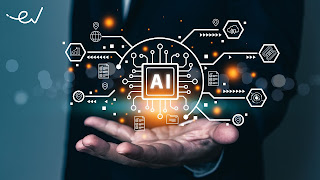Artificial intelligence (AI) is a double edged sword. It presents both exciting opportunities and troubling drawbacks.
Sometimes it works in our favor, and other times it works against us. But regardless of that concerning reality, it is all around us, from online chatbots to digital home assistants to food ordering devices at select restaurants.
It is something we cannot escape, and it is growing at a rapid rate.
So, where does this leave us?
Well, the 2019 PBS Documentary “In the Age of AI” provides an in-depth overview on the concept of AI and how it is shaping our everyday routine.
On the bright side, artificial intelligence has transformed various industries and operations such as automation, customer service, and data analysis. AI has pushed the bounds of what was previously possible for computers, and thereby enhancing efficiency and productivity within workplace environments.Having said that, integrating AI into our daily lives comes with a number of concerns. These disadvantages range from job displacement to privacy issues to social surveillance.
Specifically, Molly Kinders who studies the future of work at a Washington think tank shared in the documentary that “women disproportionately hold the jobs that today are at highest risk of automation.”
Take Mcdonald’s for example. Mcdonald’s Corp., along with many other fast-food chains, are beginning to steer away from in-person cashiers and instead towards mobile ordering screens. The intention behind doing this is to minimize human error and maximize revenue, but the fact of the matter is that this shift towards AI is eliminating jobs.In addition to the fear of job displacement, artificial intelligence also brings up concerns regarding online privacy and social surveillance. These issues are a direct threat to our online security. When we adopt artificial intelligence in our lives, we limit our freedom.
As a matter of fact, Shoshana Zuboff highlighted in the PBS documentary that whenever we search or browse, we leave behind digital traces of our behavior. These traces are known as digital exhaust.
Companies quickly realized how valuable these traces were for interaction and revenue. For this reason, they started applying machine learning algorithms to them to predict users’ interests. They then created data logs to come up with predictions of what people would click and what ads would be most fitting for each consumer.
This means that everything we search is being monitored and later used against us. It seems like nothing is truly private nowadays. There is always a third party involved, profiting off of your actions.








No comments:
Post a Comment